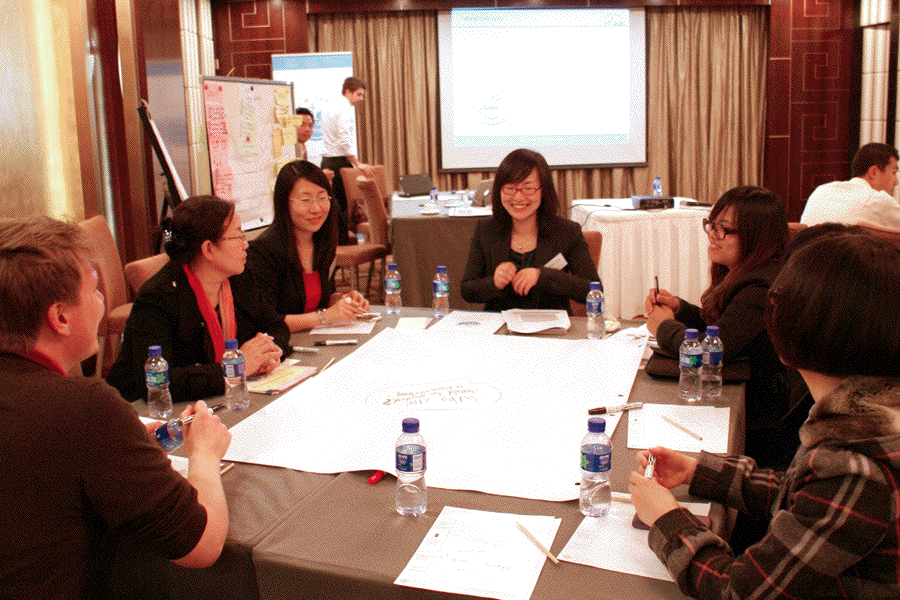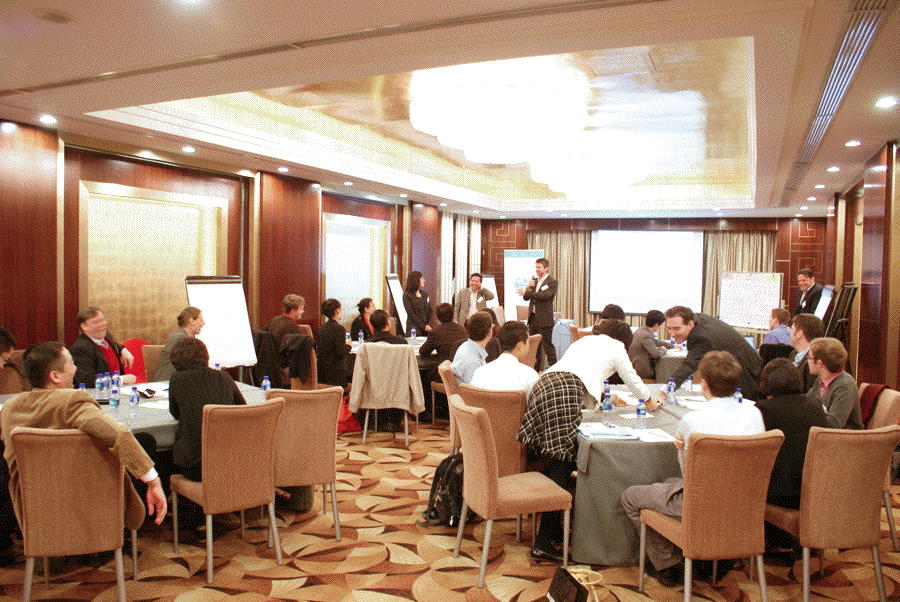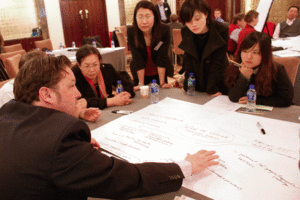
CSCP brings together low-carbon city initiatives in China
On April 15, 2013 thirty leading low-carbon city development experts and international representatives convened in Beijing to exchange perspectives on the future of China's urbanisation megatrend. The CSCP and Tsinghua moderators helped this leading group lay a foundation for future collaboration efforts.
Interactive workshop enables co-creation of tangible outputs
As a first step, moderators Professor Wang Can (Tsinghua University) and Sebastian Philipps (CSCP) facilitated an exercise to map existing Chinese low-carbon city initiatives and the range of mechanisms that have been applied to achieve their low carbon goals. Together, participants explored ways to foster exchange and synergies among projects and their diverse implementation mechanisms. Focus areas for the workshop included pilot implementation, scientific research, stakeholder dialogue, capacity building, and the application of market and economic instruments.

By means of a World Café session, the group formulated concrete pathways toward the institutionalisation of the exchange of ideas and the involvement of additional stakeholders. During a final group session, representatives agreed on a set of criteria for viable exchanges and designed their first transfer of ideas around these criteria. In the end both the Chinese and Western participants stressed their strong support for the interactive and co-creation oriented format, and underlined their confidence in building upon this foundation in the future.
Significant demand for collaboration to support low-carbon cities in China
The workshop attracted triple the number of participants than originally planned. In all some thirty representatives attended the workshop. Attendees included the World Resource Institute, WWF, the EC Delegation in Beijing, GIZ, Ecofys, Germanwatch, E3G, CER, the Chinese Society of Sustainable Development, the Administrative Centre for China's Agenda 21, CECEP, CMA, NRDC, the Climate Group, CANGO, and Stiftung Mercator.

Despite the significant demand, workshop organisers needed to limit the number of participants to retain the workshop’s desired interactive format. This popularity and the results of the day revealed a substantial stakeholder interest in collaborating and the large potential for synergies in China. Workshop organisers from the Wuppertal Institute, the moderating partners, and Stiftung Mercator, the project donor, are now working to evaluate potential next steps toward further exchange, collaboration and institutionalisation.
Project experience motivated the workshop
The inspiration for this workshop on Low Carbon City Initiatives evolved out of the experience of the Low Carbon Future Cities Project that is also funded by Stiftung Mercator. That project supports collaboration on low-carbon development in Wuxi (PR China) and Düsseldorf (Germany).
